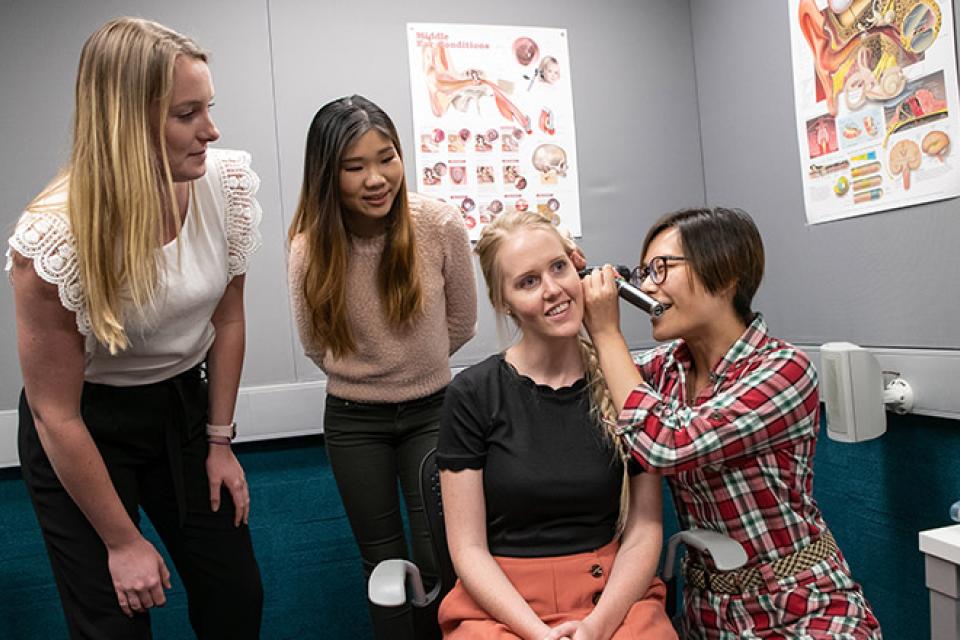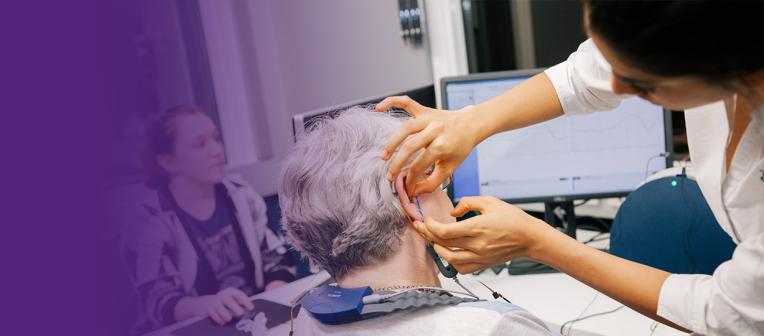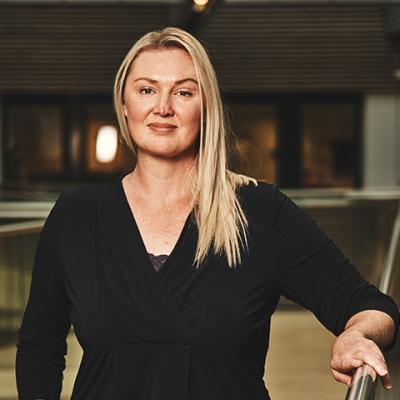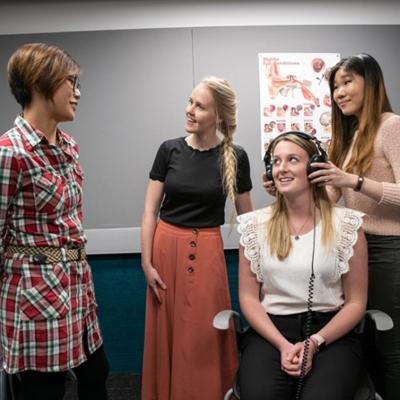You know to go to a dentist to look after your teeth, and to an optometrist if you’re having trouble with your eyesight. But do you know who to turn to if you have problems with your hearing? The answer (as you may have guessed by now) is an audiologist.
But how do you become an audiologist? Let's find out.
What is an audiologist?
An audiologist is an allied health professional who specialises in hearing and ear health. They’ve studied extensively at a university level to be able to provide rehabilitative support to those with hearing difficulties.

These audiology students are practising performing an otoscopy
What does an audiologist do?
Audiologists assist people with their hearing and ear health. They do this by:
- determining the level of hearing loss the individual is experiencing
- coming up with ways to help their clients hear and participate in communication again.
Audiologists implement hearing tests to determine the level of hearing loss their client is experiencing. They diagnose the area of the auditory pathway that is affected, then help their clients take part in everyday life by prescribing support tools (such as hearing aids).
What careers are available to audiologists?
Careers in audiology can be quite varied. They include:
- clinical audiologist (treating patients in a clinic)
- audiology researcher
- working with hearing device manufacturers
- research and development
- sales representative
- humanitarian audiology
- clinic management.
Read Anthea's story to get an idea of where a career in audiology could take you.
How to become an audiologist
To become an audiologist, you must successfully complete a master’s level audiology degree, including a number of clinical placement hours. Audiology Australia, the accreditation body for audiology programs, requires a minimum of 250 hours.
After graduation, 1 year of clinical internship is required. This year will involve working with experienced clinical audiologists to provide guidance and on-the-job training.
After your year of clinical internship, you’re eligible to become an accredited audiologist with the Federal Office of Hearing Services.
How long does an audiology degree take?
UQ’s Master of Audiology Studies program allows eligible graduates of relevant prior study to undertake a 2-year program (when studied full time).
This program includes at least 250 hours of clinical placements, as well as highly relevant audiology courses taught by leaders in audiology research and practice.
Read Miriam's story to explore what it's like to study the Master of Audiology Studies at UQ.
How do I study the Master of Audiology Studies?
UQ’s Master of Audiology Studies is delivered predominantly on campus. The program includes an emphasis on technology and interprofessional education to prepare you for the modern healthcare workforce.
To be eligible for UQ’s Master of Audiology Studies, you’ll need to meet its entry requirements. Review all the key information, including application dates, and follow the links to submit your application.







